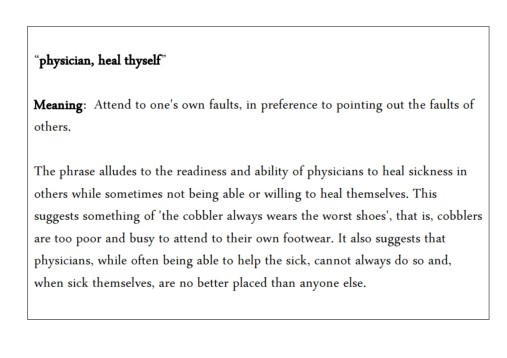
I recently attended the Vitae Connections event for Researcher Developers who had, to quote the room on the day, “been around while”. We spent six glorious hours in London thinking about our own career development whilst also hearing about researcher development initiatives from various national and international universities.
The day started with a session considering the future for roles like ours and the researcher needs of tomorrow. Using the horizon scanning technique of communities of interest, we considered the impact of emerging technologies and economies, changing supply and demand of resources, social attitudes of young people and future demographic changes on what we do today and how this will change in the future. Generally, the room was positive with many saying that their role had come a long way since the ‘Roberts’ era but the future was a lot less clear.
 The second session tapped in to this uncertain future. When asked to reflect on the challenges we now face, i.e of being in a role that has no set career path, it was interesting to be given a copy of the Vitae Researcher Developers’ Professional Framework (ReDProF). However, I found the most useful element of the session was to consider my own abilities, skills and strengths using the analogy of a cruise liner. There was agreement that we are all captains of our own career cruise liner but often we are so focused on “the passengers, the entertainment and the catering” we often forget to take time to consider where are we heading. I found it useful to reflect and ask myself ‘who is currently captaining that ship?’ ‘What small changes do I need to make in order to ultimately arrive at my desired destination?’ ‘Do I know where that destination is?’ ‘Who else do I need help me navigate rough seas?’ We were reminded of the adage you can’t turner a tanker on a sixpence, and through implementing change at this point we could ultimately plot our own course. Keeping that analogy in mind what followed were 3 insightful speakers sharing practise, knowledge and experience of working in, influencing and challenging higher education policy and culture.
The second session tapped in to this uncertain future. When asked to reflect on the challenges we now face, i.e of being in a role that has no set career path, it was interesting to be given a copy of the Vitae Researcher Developers’ Professional Framework (ReDProF). However, I found the most useful element of the session was to consider my own abilities, skills and strengths using the analogy of a cruise liner. There was agreement that we are all captains of our own career cruise liner but often we are so focused on “the passengers, the entertainment and the catering” we often forget to take time to consider where are we heading. I found it useful to reflect and ask myself ‘who is currently captaining that ship?’ ‘What small changes do I need to make in order to ultimately arrive at my desired destination?’ ‘Do I know where that destination is?’ ‘Who else do I need help me navigate rough seas?’ We were reminded of the adage you can’t turner a tanker on a sixpence, and through implementing change at this point we could ultimately plot our own course. Keeping that analogy in mind what followed were 3 insightful speakers sharing practise, knowledge and experience of working in, influencing and challenging higher education policy and culture.
Firstly, Dilly Fung, Director of the Centre for the Advancement of Learning and Teaching at UCL provided two interesting casestudies on the perceptions of teaching, research and learning at UCL and her challenge to bring these areas together under the banner of UCL Arena. “If you teach, supervise, assess or support students’ learning at UCL, in any context, UCL Arena is for you. It’s a meeting place for colleagues to share approaches to teaching and learning in our research-intensive university – a conceptual space for debate and exploration. UCL Arena is accredited by the Higher Education Academy, so it’s also a place in which you can choose to gain professional recognition awards for your teaching expertise.” (Taken from the UCL Arena wesite)
Dilly was keen to share the experience reminding university staff of the ethos of education and teaching within a research institute. The launch of Connected Curriculum in Septemeber 2014 has allowed all UCL students the opportunity to become involved in research from the very start of their degree programme and for research skills to become embedded in all undergraduate courses, closing the gap between researchers and students.
“Comprising seven dimensions of connectivity, Connected Curriculum sets out a plan for a joined up approach to education. As well as defining the relationship between students’ learning and their participation in research, it also describes the connections to be made between disciplines, years of study and staff and students. Connected Curriculum is a standard for the future of education at UCL, and over the next five years (2015-2020), UCL will work towards ensuring all courses meet its seven dimensions.” (taken from the UCL Connected Curriculum website)
What I took from this session was the potential and possibility of change within an institution. By bringing together 2 separate areas and highlighting the similarities, the benefits of working more effectively together for the good of those who are the future of research were obvious. It reminded me to consider the communities of interest who have a stake in the future of higher education in the UK and who I need on my career cruise liner.
Secondly, Kelly Coate, Director of King’s Learning Institute at KCL set out an interesting body of research looking at the concept of the prestige economy and the gender inbalance of senior staff positions in higher education. Kelly spent time demonstrating that “…academics are motivated by prestige factors accrued through advancement in their careers. Prestige, authority and status, we suggest, may be more easily acquired by male academics” (Coates & Howson 2014, 1).
By comparing the factors influencing progression for women in academic roles, I asked myself what could this mean for us as women researcher developers? As I looked around the room of 25 women and 1 solitary man I considered how the recommendations to avoid ‘fixing women’ could be extrapolated to consider how we could empower our women researcher developers and ultimately enable them to progress from researcher developer to more senior roles, especially when that role does not exist – yet. The answer is surely identifying the prestige economy and the currency of esteem for researcher developers.
Finally, in stark contrast to the ideas put forward by Kelly, Guy Woodward, a Reader in Ecology at Imperial College with over £7M of funding to his name, presented a personal view on why researcher development is not top of his agenda. It was his view that, when it comes to being the research leaders of the future, researchers should research first, teach second and do admin third. In order to get ahead in the world of academia he encourages his researchers to ‘shape the field’, write opinion papers, attend conferences, lobby, co-ordinate writing proposals for RCUK and sit on panels for funding and papers. He also talked about the need to collaborate in order to play to your strengths, build alliances and know who you can work with always with an eye on future funding and ultimately expect rejection as a marker of how high you are aiming.
To start a presentation stating that researcher development isn’t needed in a room of researcher developers was always going to be controversial, yet in a strange way I found the session inspirational. Perhaps, what Guy was saying was using experience and ‘real-time’ training is just as valuable as attending a workshop, something I think most researcher developers would agree. If you want to get noticed in a university attending a workshop in networking and influencing skills is just part of the journey. If you can, why not learn on the job and accept that sometimes there will be rejection or you might get it wrong? If you start small (remember that career cruise liner making small adjustments to its trajectory?) those rejections don’t push you off course that much and through reflection and learning from that experience you can correct for that over time. Just ‘doing it’ can be just as good a way to learn.
Perhaps, it is just about jumping in at the deep end, being brave – its just that researchers and researcher developers who have attended a training session jump in wearing a life jacket…

References
Lifejacket image from http://www.lifejackets.co.uk
Kelly Coate & Camille Kandiko Howson (2014): Indicators of esteem: gender and prestige in academic work, British Journal of Sociology of Education, DOI: 10.1080/01425692.2014.955082
“physician heal thyself” Taken from http://www.phrases.org.uk/meanings/281850.html


 The second session tapped in to this uncertain future. When asked to reflect on the challenges we now face, i.e of being in a role that has no set career path, it was interesting to be given a copy of the Vitae Researcher Developers’ Professional Framework (ReDProF). However, I found the most useful element of the session was to consider my own abilities, skills and strengths using the analogy of a cruise liner. There was agreement that we are all captains of our own career cruise liner but often we are so focused on “the passengers, the entertainment and the catering” we often forget to take time to consider where are we heading. I found it useful to reflect and ask myself ‘who is currently captaining that ship?’ ‘What small changes do I need to make in order to ultimately arrive at my desired destination?’ ‘Do I know where that destination is?’ ‘Who else do I need help me navigate rough seas?’ We were reminded of the adage you can’t turner a tanker on a sixpence, and through implementing change at this point we could ultimately plot our own course. Keeping that analogy in mind what followed were 3 insightful speakers sharing practise, knowledge and experience of working in, influencing and challenging higher education policy and culture.
The second session tapped in to this uncertain future. When asked to reflect on the challenges we now face, i.e of being in a role that has no set career path, it was interesting to be given a copy of the Vitae Researcher Developers’ Professional Framework (ReDProF). However, I found the most useful element of the session was to consider my own abilities, skills and strengths using the analogy of a cruise liner. There was agreement that we are all captains of our own career cruise liner but often we are so focused on “the passengers, the entertainment and the catering” we often forget to take time to consider where are we heading. I found it useful to reflect and ask myself ‘who is currently captaining that ship?’ ‘What small changes do I need to make in order to ultimately arrive at my desired destination?’ ‘Do I know where that destination is?’ ‘Who else do I need help me navigate rough seas?’ We were reminded of the adage you can’t turner a tanker on a sixpence, and through implementing change at this point we could ultimately plot our own course. Keeping that analogy in mind what followed were 3 insightful speakers sharing practise, knowledge and experience of working in, influencing and challenging higher education policy and culture.







